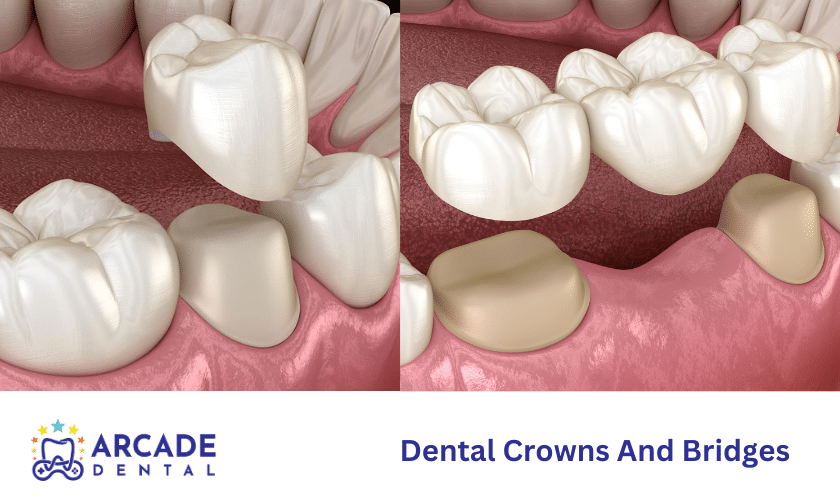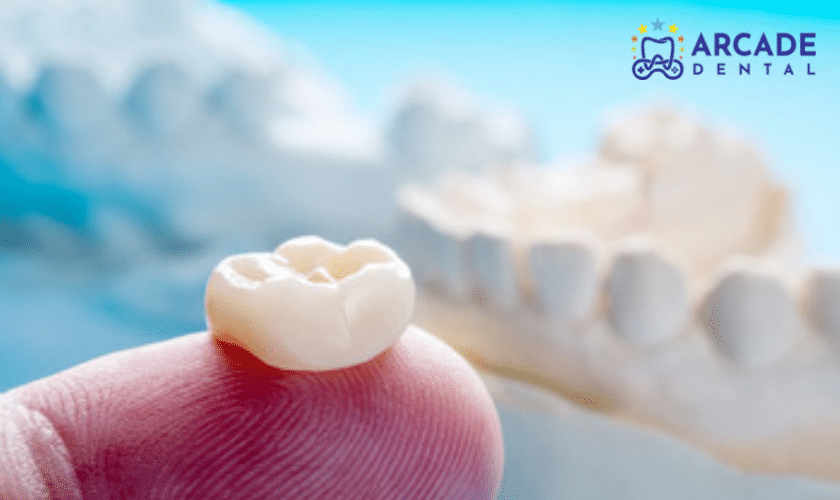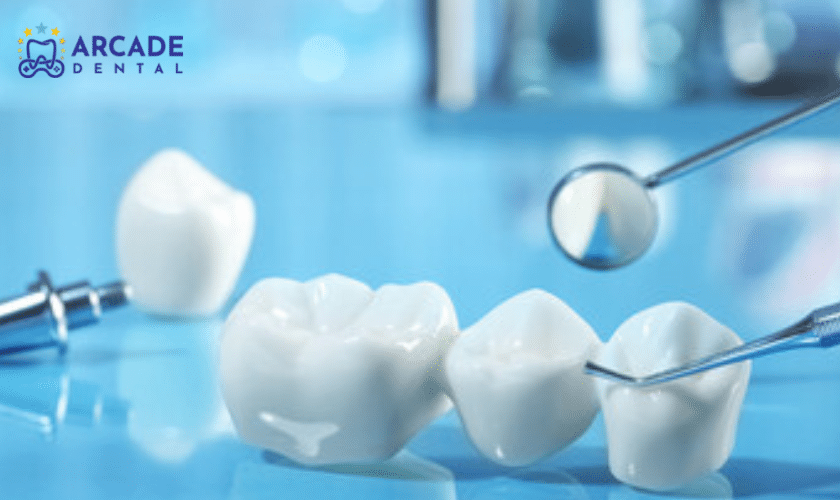
When it comes to maintaining your oral health, dental crowns play a vital role in preserving the integrity of your teeth. In this comprehensive article, we’ll explore why dental crowns might occasionally become dislodged and provide valuable insights on how to prevent such occurrences. As we delve into the world of dental care, particularly for those seeking a reliable dentist in Pharr, we’ll uncover effective strategies to keep your dental crowns secure, ensuring both functionality and aesthetics.
What Are Dental Crowns?
Dental crowns, often referred to as tooth caps, are custom-made prosthetics designed to encase a damaged tooth entirely. Crafted from materials like ceramic, porcelain-fused-to-metal, or metal alloys, these crowns offer a protective barrier that restores the tooth’s strength, shape, and appearance. Dental crowns serve a dual purpose. They address dental issues such as extensive decay, cracks, or weakened teeth after root canal treatments while also enhancing the overall aesthetics of your smile.
Why Do You Need Dental Crowns?
Dental crowns, sometimes referred to as tooth caps, are custom-designed prosthetics created to encase a damaged tooth entirely. Crafted from a variety of materials including ceramic, porcelain-fused-to-metal, or metal alloys, these crowns offer a protective barrier that not only restores the tooth’s strength and shape but also enhances its appearance. For residents seeking a reputable dentist in Pharr, understanding the significance of dental crowns is essential for addressing dental concerns and achieving a healthy smile.
Reasons Why Dental Crowns May Fall Off?
Despite their durability, dental crowns can occasionally dislodge. Several factors contribute to this issue, including poor cementation during the crown placement, an improper fit that creates room for bacterial infiltration, and external pressures due to chewing on hard objects. Over time, wear and tear can also play a role in crown failure. Neglecting oral hygiene practices, such as inadequate brushing and flossing around the crown, can lead to plaque buildup and weaken the bond between the crown and the tooth.
How to Prevent Dental Crowns from Falling Off?
Preserving the integrity of your dental crowns requires a proactive approach to oral care and lifestyle choices. Here are the key steps you can take to prevent dental crowns from falling off:
Maintaining Good Oral Hygiene
Brushing and flossing are fundamental practices that must be continued even after getting dental crowns. However, paying extra attention to the crown area is crucial. Gently brush the crown and the surrounding gumline using a soft-bristle toothbrush. Floss carefully around the crown, ensuring that no food particles or plaque accumulate. Remember, proper oral hygiene keeps the crown’s bond with the tooth strong.
Regular Dental Check-ups
Scheduling regular dental check-ups is paramount. Dentists possess the expertise to assess the condition of your dental crowns and identify any potential issues. During these visits, they can also professionally clean the crown area, ensuring that plaque buildup is kept in check. Early detection of any problems can prevent crown detachment and more complex dental issues down the line.
Avoiding Harmful Habits
Certain habits can put undue stress on dental crowns, increasing the risk of dislodgment. Nail biting, chewing on pens, or opening packages with your teeth should be avoided. These actions exert excessive pressure that can weaken the bond between the crown and the underlying tooth. By breaking these habits, you safeguard the stability of your dental crowns.
Healthy Dietary Choices
The foods you consume can impact the longevity of your dental crowns. Sticky candies, hard nuts, and overly chewy substances can strain the crown and compromise its adhesive. Opt for a balanced diet rich in fruits, vegetables, lean proteins, and whole grains. Minimize the intake of sugary and acidic foods, which can also contribute to dental issues.
Using a Mouthguard
If you’re engaged in physical activities or sports that carry a risk of impact, consider wearing a custom-fitted mouthguard. A mouthguard acts as a protective barrier, absorbing shocks and preventing direct trauma to your dental crowns. This step is particularly important for individuals who participate in contact sports like football, basketball, or martial arts.
Addressing Issues Promptly
If you notice any discomfort, sensitivity, or unusual sensations around your dental crown, don’t ignore them. These signs might indicate a problem with the crown’s stability. Contact your dentist as soon as possible to have the issue examined and resolved. Timely intervention can prevent further complications and maintain the integrity of the crown.
Avoid Extreme Temperature Changes
Sudden changes in temperature, such as consuming hot foods followed by cold beverages, can cause dental materials to expand and contract at different rates. Over time, this could weaken the bond between the crown and the tooth. Try to consume foods and beverages at moderate temperatures to minimize these effects.
Dental crowns play a pivotal role in restoring dental health and aesthetics. Understanding the reasons behind crown detachment and implementing preventive measures is essential for maintaining their longevity. By nurturing proper oral hygiene practices, seeking professional guidance from a dentist in Pharr, and making informed lifestyle choices, you can ensure that your dental crowns stay firmly in place, preserving both your smile’s radiance and your oral health.




